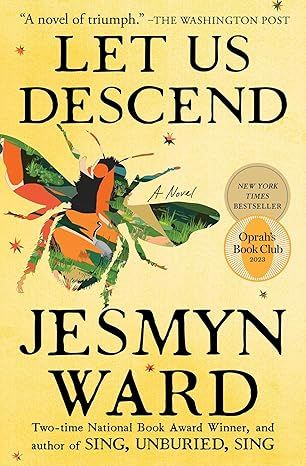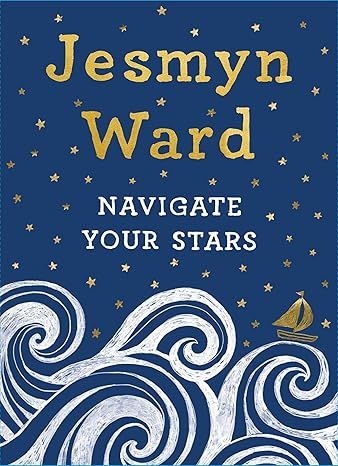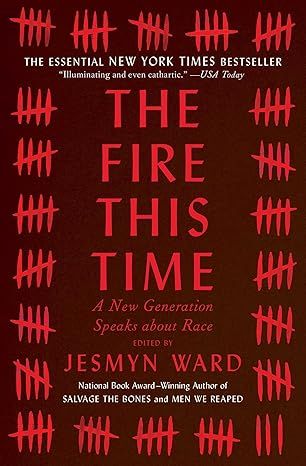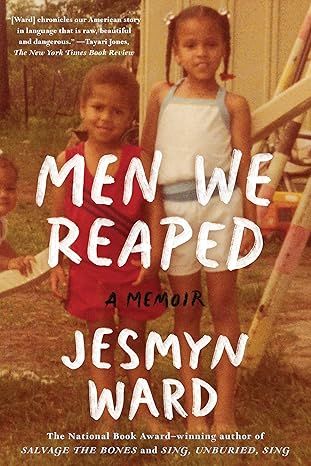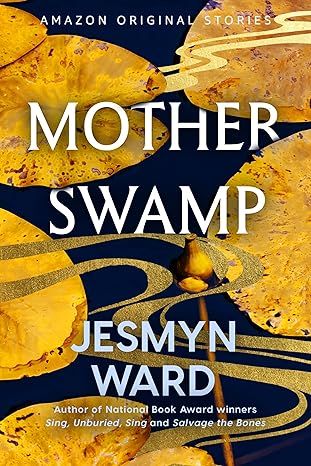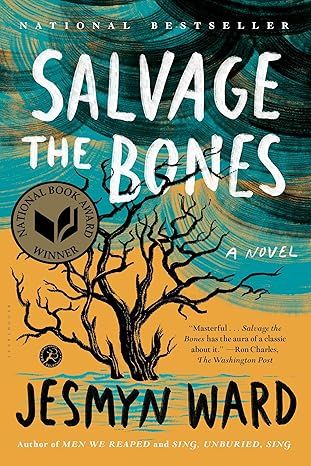Let Us Descend: A Novel
4 out of 5
2,348 global ratings
OPRAH’S BOOK CLUB PICK • Instant New York Times Bestseller • Named one of the best books of 2023 by The Washington Post, Vanity Fair, The Boston Globe, Time, The New Yorker, and more.
“Nothing short of epic, magical, and intensely moving.” —Vogue • “A novel of triumph.” —The Washington Post • “Harrowing, immersive, and other-worldly.” —People
From “one of America’s finest living writers” (San Francisco Chronicle) and “heir apparent to Toni Morrison” (LitHub)—comes a haunting masterpiece about an enslaved girl in the years before the Civil War that’s destined to become a classic.
Let Us Descend describes a journey from the rice fields of the Carolinas to the slave markets of New Orleans and into the fearsome heart of a Louisiana sugar plantation. A journey that is as beautifully rendered as it is heart wrenching, the novel is “[t]he literary equivalent of an open wound from which poetry pours” (NPR).
Annis, sold south by the white enslaver who fathered her, is the reader’s guide. As she struggles through the miles-long march, Annis turns inward, seeking comfort from memories of her mother and stories of her African warrior grandmother. Throughout, she opens herself to a world beyond this world, one teeming with spirits: of earth and water, of myth and history; spirits who nurture and give, and those who manipulate and take. While Annis leads readers through the descent, hers is ultimately a story of rebirth and reclamation.
From one of the most singularly brilliant and beloved writers of her generation, this “[s]earing and lyrical…raw, transcendent, and ultimately hopeful” (The Atlanta Journal-Constitution) novel inscribes Black American grief and joy into the very land—the rich but unforgiving forests, swamps, and rivers of the American South. Let Us Descend is Jesmyn Ward’s most magnificent novel yet.
336 pages,
Kindle
Audiobook
Hardcover
Paperback
Audio CD
First published September 2, 2024
ISBN 9781982104504
About the authors
Jesmyn Ward
Jesmyn Ward received her MFA from the University of Michigan and has received the MacArthur Genius Grant, a Stegner Fellowship, a John and Renee Grisham Writers Residency, and the Strauss Living Prize. She is the winner of two National Book Awards for Fiction for Sing, Unburied, Sing (2017) and Salvage the Bones (2011). She is also the author of the novel Where the Line Bleeds and the memoir Men We Reaped, which was a finalist for the National Book Critics Circle Award and won the Chicago Tribune Heartland Prize and the Media for a Just Society Award. She is currently an associate professor of creative writing at Tulane University and lives in Mississippi.
Read more
Reviews
K. Dorsey
5
Painfully, Beautifully Written
Reviewed in the United States on August 4, 2024
Verified Purchase
I hope there’s a sequel…I want to know what becomes of Annis, but I know her tenacity will continue to lead her. Ward never disappoints, and this book is no different. This book took me on a journey of reflection and remembrance, and I’m so glad I took it.
Carolina D.
5
Rodeo1mom
Reviewed in the United States on July 9, 2024
Verified Purchase
This was a very gripping story. It brought to life the hardships of Anese’s life, her mother’s and her grandmother’s.
I really loved the book
Andrea Rudolph
5
potent and Important
Reviewed in the United States on July 22, 2024
Verified Purchase
What a talented artist this author is. Her lyrical narrative points very poignantly to the crisis of slavery and the barbaric treatment of “other” when one determines that there is “other”. Important moral lesson conveyed in poetic form that is pure artistry
MJOHNSON
4
Invokes your imagination throughout
Reviewed in the United States on February 18, 2024
Verified Purchase
My knowledge of the experiences of the enslaved in the US was graphically relived in my mind as I read this book.
It covered many of the life experiences of a slave from birth to the desires of freedom of the enslaved through Annis’ life (main character).
I read this book because it was on the Oprah book list.
Very good book.
4 people found this helpful
Sandra L. Manigault
4
Most fascinating
Reviewed in the United States on March 28, 2024
Verified Purchase
I have read several of Ms. Ward's books. I liked them all. This one was by far the most captivating and the most challenging to read. As a writer myself I can only imagine what it took for her to produce this masterpiece. It is a very different look and a much deeper look at the institution of slavery.
Sandra L Manigault
2 people found this helpful
Gigi
4
Good Read
Reviewed in the United States on April 3, 2024
Verified Purchase
While it is not my favorite from Jesmyn it wad still an amazing read. It was confusing during some scenes but I was content with how it ended.
Leigh
3
A confused fan
Reviewed in the United States on July 16, 2024
Verified Purchase
I enjoy Jesmyn Ward’s work so everything she writes is an automatic read for me, synopses not necessary. I went into this book not knowing what it was about and only expecting that I’d enjoy because it’s Jesmyn Ward. I finished the book confused and unmoved because I didn’t really understand what was happening and I’m still kinda unclear about the messaging of the novel.
Something that made this book confusing for me were the prose. They waxed a bit too poetic for me making it a bit difficult to understand and even clogging to story at times. The overly poetic prose also contributed to the vagueness of the writing making the story a bit difficult to follow at times. I felt like I was missing things as I was reading because I didn’t fully get what the characters were discussing or alluding to.
I understand that this is a story about multi-generational trauma and healing. I appreciate that this novel reveres ancestry which is a common theme in Jesmyn Ward’s work. As someone currently living in Benin, I liked the inclusion of the Beninese Neale warriors in the narrative and that Benin gets another spotlight in popular media. However, I just didn’t understand this stir and the purpose and what we was supposed to be driving us forward in the story.
Because this is Jesmyn Ward I’ll consider reading this book again to better understand what I didn’t get the first time. But this is the first time I’ve been disappointed by her work.
Read more
Anthony Conty
3
I Really Wanted to Like It, But...
Reviewed in the United States on March 9, 2024
Verified Purchase
“Let Us Descend” by Jezmyn Ward requires a strong stomach, like most novels about slavery. The reader wants realism, then reads about rape and technical incest and wishes for less. The protagonist, Annis, takes us on a journey inspired by Dante’s Inferno when her Sire (father) cruelly sends her mother away.
“Magical Realism,” one of the suspicious genres assigned to this intense book by Goodreads, is my kryptonite. I get lost if I struggle to transition from the real to the fantastical. When Annis meets spirits, however, she thoroughly introduces us to them. Having a caring spiritual being with whom you could consult while going through the humiliating process of a slave market provides promise in an otherwise hopeless situation.
I watched a Jezmyn Ward interview on the Seth Meyers show in which he described this as an “easy read.” I needed several double-takes to comprehend everything. I simultaneously thought the action was a horrifying representation of slavery and that I did not know what was going on. I had a professor to help with “Inferno,” thankfully.
Still, you will enjoy Annis as she struggles to find creative ways to have freedom. Annis finds solutions despite her struggles, some of which are too late in the book to mention here. The author based this story on the journey process instead of a sequential plot or specific destination. Dante’s classic “Inferno” qualifies as the same quirky classification.
I read for the same reason I teach: I like “A-Ha” moments. This book had them, but you had to go a long time between them. It was a grueling experience. I wanted to like it more than I did, but my comprehension started to slip, which affected my interest in the characters and the storyline.
Read more
10 people found this helpful
Bill Hansen
3
I'm an outlier, did not feel this was up to Ward's standard
Reviewed in the United States on November 24, 2023
Verified Purchase
In her afterword, Ward acknowledges that she struggled with this book, and that struggle shows. I'm a huge fan of almost all of her work, but not as big a fan of "Let Us Descend". The stories of the cruelty and privations experienced by slaves is moving and very familiar. Perhaps it can't be retold too often. Ward's descriptions of scenes are vivid. However, I didn't feel that there was enough movement in the plot, enough change, to accompany the descriptions of hardships. I was just not able to get immersed in "....Descend" as I've been immersed in her previous work. The effectiveness of the spirits which attempt to guide the protagonist did not work as well for me as they apparently did for others. The book also seems to have a couple of "seams" which don't quite stick together, and the ending seems somewhat forced. Still, I remain a huge fan of her previous work, and I look forward to her next book. Without question, I'll buy and read that book.
Read more
30 people found this helpful
Paula E. David
2
Disappointing
Reviewed in the United States on November 15, 2023
Verified Purchase
This novel opens with as magnificent a sentence as the human mind can devise. Towards the end, the protagonist's efforts to extricate herself from a toxic relationship with her spirit guide, demonstrates tremendous dexterity of thought on the part of the writer. But for me, everything between was a slough.
My first question about this novel was, what is it? I could not make sense of why it has been marketed as prose fiction when it is clearly written in verse. When I recognised that it is in conversation with Dante's "The Divine Comedy", I counseled myself to continue plodding. Unfortunately, the interesting vision was not enough to warm me to this work.
It may be that I'm just tired of slave narratives. Chattle slavery in the Americas was horrendous. I know that. If I am to read another slave narrative, it must tell me more than I know. But my dissatisfaction does not end there. The fact that the protagonist, an enslaved woman with no formal education, delivered the bulk of her narrative in a version of English that only educated people speak, was mystifying. Her vocabulary included words like, "detritus”, “occluded”, “purview”, “inexorable”, “interrogating”, “infinitesimal”, “instinctual”, “dissipate”, “duplicitous”, “dissent” and “unfurls”. Yet when we read her in dialogue, she speaks a black vernacular English. The novel gives us no explanation of how she came to be bilingual.
The bottom line is I found this work dull, dull, dull. If any of you enjoys it, please help me understand what I've missed.
Read more
36 people found this helpful
Top Jesmyn Ward titles
Best Sellers

The Tuscan Child
4.2
-
100,022
$8.39

The Thursday Murder Club: A Novel (A Thursday Murder Club Mystery)
4.3
-
155,575
$6.33

Sapiens: A Brief History of Humankind
4.6
-
140,302
$13.49

The Butterfly Garden (The Collector, 1)
4.3
-
88,556
$9.59

Things We Hide from the Light (Knockemout Series, 2)
4.4
-
94,890
$11.66

The Last Thing He Told Me: A Novel
4.3
-
154,085
$2.99

The Perfect Marriage: A Completely Gripping Psychological Suspense
4.3
-
143,196
$9.47

The Coworker
4.1
-
80,003
$13.48

First Lie Wins: A Novel (Random House Large Print)
4.3
-
54,062
$14.99

Mile High (Windy City Series Book 1)
4.4
-
59,745
$16.19

Layla
4.2
-
107,613
$8.99

The Locked Door
4.4
-
94,673
$8.53
